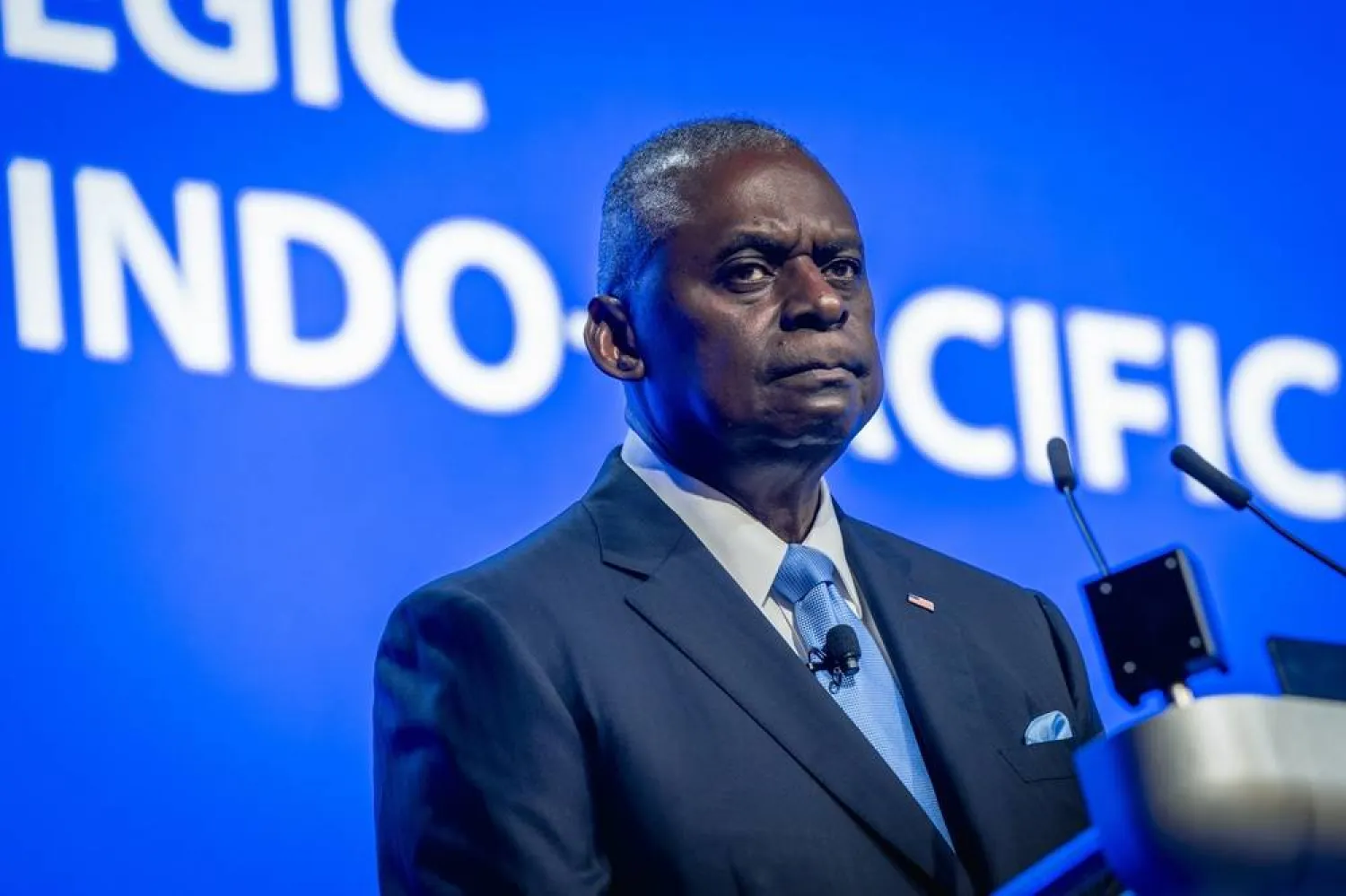US Defense Secretary Lloyd Austin on Saturday tried to refocus attention on China's threat in the Pacific, seeking to alleviate concerns that conflicts in Ukraine and Gaza have distracted from America's security commitments in Asia.
Austin, who was speaking at the annual Shangri-La Dialogue security summit in Singapore, met his Chinese counterpart, Dong Jun, on Friday in a bid to cool friction over issues from Taiwan to China's military activity in the South China Sea.
There has been increasing concern that Washington's focus on helping Ukraine counter Russia's invasion and support for Israel's war in Gaza, while trying to ensure that the conflict does not spread, has taken away attention from the Indo-Pacific.
"Despite these historic clashes in Europe and the Middle East, the Indo-Pacific has remained our priority theater of operations," Austin said in his speech, which appeared aimed at making the administration's legacy in the region clear as President Joe Biden's first term in office nears its end.
Biden is running for re-election in November against former President Donald Trump.
"Let me be clear: The United States can be secure only if Asia is secure. That’s why the United States has long maintained our presence in this region."
Austin underscored the importance of alliances in the region.
"And ... peaceful resolution of disputes through dialogue and not coercion or conflict. And certainly not through so-called punishment," Austin said, taking a shot at Beijing.
During their meeting, Dong warned Austin that the US should not interfere in China's affairs with Taiwan, defense ministry spokesperson Wu Qian told reporters. China claims the democratically governed island as its own territory.
Some US officials say Beijing has become more emboldened in recent years, recently launching what it described "punishment" drills around Taiwan, sending heavily armed warplanes and staging mock attacks after Lai Ching-te was inaugurated as Taiwan's president.
The United States has provided tens of billions of dollars in military aid to Ukraine since the invasion, and the US Congress appropriated $61 billion more last month. It has also continued to arm Israel, and the same bill provides $26 billion to in additional support for that country.
About $8 billion is set aside for countering China in the Indo-Pacific as part of the supplemental funding bill passed by lawmakers.
Philippine President Ferdinand R. Marcos Jr on Friday denounced illegal, coercive and aggressive actions in the South China Sea, a disputed ocean territory that China has been flooding with coastguard ships in recent months.
The Philippines, a sprawling archipelago with strong historical ties to the United States and close geographical proximity to China, is at the center of an intensifying power struggle between Washington and Beijing.
Austin said the harassment Manila was facing was dangerous.
"America will continue to play a vital role in the Indo-Pacific, together with our friends across the region that we share and care so much about," Austin said.









